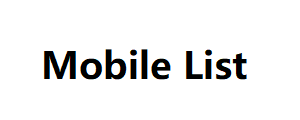While there are 19% who are not interest in the model, the vast majority of respondents showeinterest in different types of services within the context of non-traditional subscriptions, which we explore below: product boxes Almost half of these respondents (49%) express an interest in paying for a box of products. In this subscription model, the Mobile List consumer regularly receives a box at home with new products from a certain segment. It can be a box of drinks, books, among others. In the Capterra survey, the top type of product that respondents would accept per box is cosmetics (61%), follow by clothing (52%) and food (51%), with 4 out of 10 respondents (40%) would feel comfortable paying between BRL 21 and BRL 50 for these subscription boxes.
The service subscription model gain
In this case, 27% of respondents who do not have non-traditional subscriptions show interest in carrying out this type of subscription. In this category, the main product that people would like to receive regularly are basic consumer Cape Verde Email List items such as coffee and cereal (55%). Also 52% indicat products for pets and 51% highlight products for cleaning, such as disinfectant, washing powder and glass cleaner. For supply products, 34% would be willing to pay something between R$21 and R$50. But, in this category, the values are also balanc in the other ranges: 26% would be willing to pay something between R$51 and R$80 and 22% are comfortable paying amounts between BRL 81 and BRL 110. Most respondents would pay between BRL 21 and BRL 50 for supply subscriptions Service Subscriptions.
Most respondents are interest
One of them is the subscription service of fitness or wellness platforms: 34% of respondents who have non-traditional subscriptions declar an interest in subscribing to this model. Most are interest in platforms that take care of mental health For fitness and wellness platforms, most people (43%) would also pay between BRL 21 and BRL 50 to access services in this category. Another 36% would be interest in signing up for an e-learning platform – the chart below shows which options they favor. Most interest parties (35%) would pay between R$21 and R$50 to sign up for this type of service. Most respondents are interest in learning a new language For all categories, the frequency that stakeholders would be willing to pay for a non-traditional subscription is monthly.

